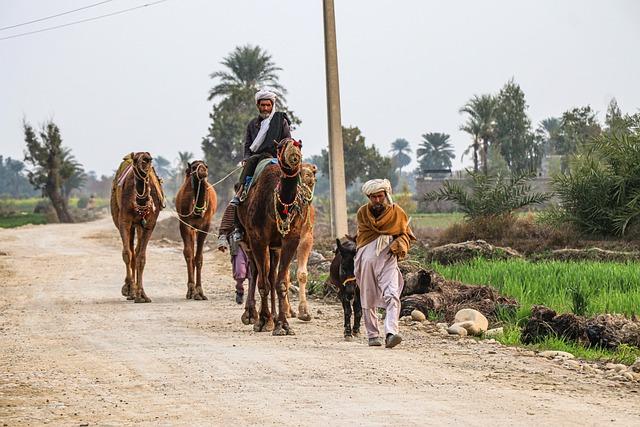In an era where the relentless flow of information shapes public perception and societal values, the media stands as both a beacon of truth and a potential source of discord. In Pakistan, a country characterized by its rich cultural tapestry and complex socio-political landscape, journalism grapples with the delicate balance between freedom of expression and ethical responsibility. Navigating this intricate maze of media ethics presents unique challenges that journalists must confront daily. From the pressures of political influence to the repercussions of sensationalism, the stakes are high. As the demand for accountability grows and the role of digital platforms expands, understanding the ethical frameworks that govern journalistic integrity becomes more vital than ever. This article delves into the contours of media ethics within Pakistan’s journalism landscape, exploring the forces that shape reporting practices, the dilemmas reporters face, and the path toward a more responsible and truthful journalism.
Understanding the Ethical Landscape of Pakistani Journalism
The ethical landscape of journalism in Pakistan is both intricate and challenging, shaped by a confluence of historical, socio-political, and cultural factors. Journalists often find themselves walking a fine line, balancing the demands of sensationalism against the need for responsible reporting. In a society grappling with issues such as political instability, terrorism, and social inequality, the role of media assumes heightened significance. Many reporters strive to uphold truthfulness, independence, and fairness, yet face immense pressures from various stakeholders, including government bodies, media owners, and even the public. The complexity of this environment not only influences the content produced but also impacts public trust in media institutions.
Ethical challenges in Pakistani journalism are further exacerbated by the lack of comprehensive regulatory frameworks and the presence of self-censorship among journalists. Considerations for ethical practice often include:
- Accountability: Ensuring that journalists are answerable for their reporting.
- Accuracy: Commitment to fact-checking and verifying information before publishing.
- Transparency: Open disclosure of sources and potential biases in reporting.
- Respect for Privacy: Balancing the public’s right to know with individual rights to privacy.
Despite the challenges, there is a burgeoning focus on journalistic ethics among media professionals. Training programs and workshops aimed at fostering ethical journalism are increasingly being implemented. Below is a brief table of some key initiatives:
| Initiative | Description |
|---|---|
| Journalists’ Ethics Training | Workshops aimed at enhancing ethical decision-making among reporters. |
| Fact-Checking Initiatives | Programs that promote accurate reporting and combat misinformation. |
| Media Monitoring Groups | Organizations that evaluate and report on media conduct and ethics. |

Challenges in Upholding Media Integrity and Responsibility
The landscape of journalism in Pakistan is fraught with complexities that challenge the principles of media integrity and responsibility. One of the primary hurdles is the pressure from political entities and powerful interest groups. These pressures often lead to self-censorship, where journalists may feel compelled to withhold critical information or present biased narratives to avoid repercussions. This dynamic not only undermines public trust but also dims the role of the media as a watchdog. Moreover, the proliferation of fake news exacerbates this issue, as sensationalism sometimes takes precedence over factual reporting, making it increasingly difficult for audiences to discern credible stories.
Financial instability in media organizations further complicates adherence to ethical standards. Many outlets resort to clickbait strategies or prioritize sensational stories that attract advertising revenue over substantive reporting. This shift can lead to a dilution of journalistic integrity, as the drive for profitability may override the commitment to thorough and balanced coverage. Additionally, the lack of robust training and continuing education for journalists about ethical practices means that many may not be well-equipped to handle these challenges effectively. As a consequence, the media landscape risks becoming a fragmented sea of information rather than a coherent platform for informed debate.

Cultivating a Culture of Accountability Among Journalists
In an era where the integrity of information is paramount, establishing a sense of responsibility among journalists is essential for the credibility of media organizations. Accountability can be fostered through various strategies that encourage journalists to reflect on their roles as purveyors of truth. This includes the implementation of rigorous editorial guidelines and check-and-balance systems that mandate fact-checking and source verification, thereby creating a culture of meticulousness and responsibility. Additionally, training programs and workshops focused on ethical reporting practices can elevate the journalistic standards, enabling reporters to recognize the weight of their words and the impact of their narratives.
Moreover, fostering an environment where journalists feel safe to report unethical practices within their ranks is crucial for accountability. Media organizations should establish whistleblower policies that protect those who expose misconduct, creating a transparent atmosphere that discourages malpractice. Regular assessments and feedback sessions can help in identifying areas of improvement, ensuring that each journalist is not only held accountable for their work but is also supported in their professional growth. By prioritizing these elements, the media landscape can cultivate a robust culture of accountability where integrity and transparency reign supreme.

Recommendations for Strengthening Ethical Standards in Reporting
To enhance the ethical framework within the media landscape, it is essential to foster a culture that prizes integrity and accountability. Media organizations should implement comprehensive training programs designed to instill the values of ethical journalism among their staff. These programs can include workshops, seminars, and interactive sessions focusing on the importance of verifying information, respecting sources, and avoiding sensationalism. Furthermore, establishing clear reporting guidelines can aid journalists in making informed decisions, ensuring consistency and reliability in their work. Key components of these guidelines should emphasize:
- Transparency: Clearly disclosing the sources of information.
- Accountability: Taking responsibility for errors and correcting them promptly.
- Respect for Privacy: Balancing the need for public interest with individual privacy rights.
Moreover, fostering collaboration between media houses and regulatory bodies can facilitate better reporting practices. Regular ethics audits and peer reviews can serve as effective tools in this process. By creating an environment of continuous evaluation, journalists are encouraged to adhere to high ethical standards. The establishment of dedicated ethical review boards within media companies can further bolster this initiative. These boards can assess controversial stories, provide constructive feedback, and develop annual reports to track ethical adherence across the organization. Such measures will not only enhance the credibility of the media but also build trust with the audiences they serve.
In Summary
As we conclude our exploration of “Navigating the Maze: Media Ethics in Pakistan’s Journalism Landscape,” it becomes clear that the path ahead is neither simple nor straightforward. The complexities of an evolving media environment in Pakistan demand that journalists wield their pens and cameras with a heightened sense of responsibility and ethics. The constant interplay between truth, public interest, and the pressures of external influences continues to shape the profession, challenging journalists to remain resilient guardians of integrity.
In this intricate labyrinth of information, each decision made has the potential to illuminate or obscure the realities faced by society. As we have seen, the importance of ethical journalism is not merely a professional requirement but a catalyst for democracy and societal progress. As we move forward, it is imperative for media practitioners, policymakers, and audiences alike to engage in meaningful dialogue about ethical standards that can adapt to the challenges of contemporary reporting.
Ultimately, the journey through this labyrinth is ongoing. As Pakistan’s journalism landscape continues to evolve, so too must our dedication to fostering a media environment characterized by transparency, accountability, and ethical rigor. Only then can we hope to navigate the intricate paths of truth and justice in a way that uplifts and unites all voices in the narrative of our shared existence. Thus, the dialogue continues—an invitation for all stakeholders to embark on this critical journey toward a more ethical journalism landscape in Pakistan.



